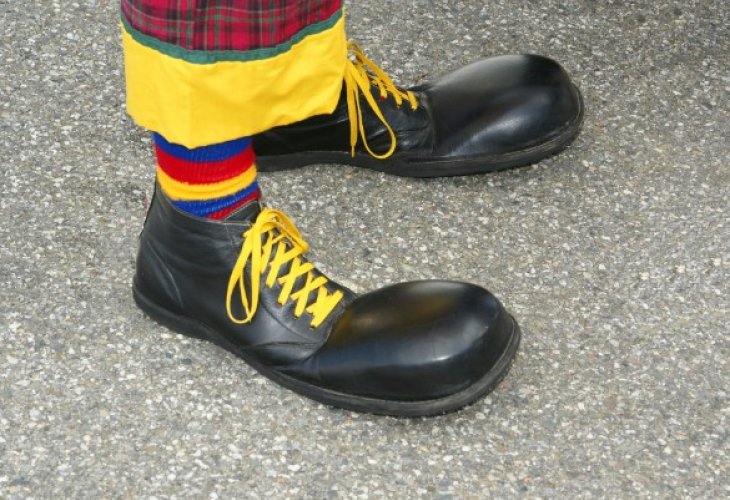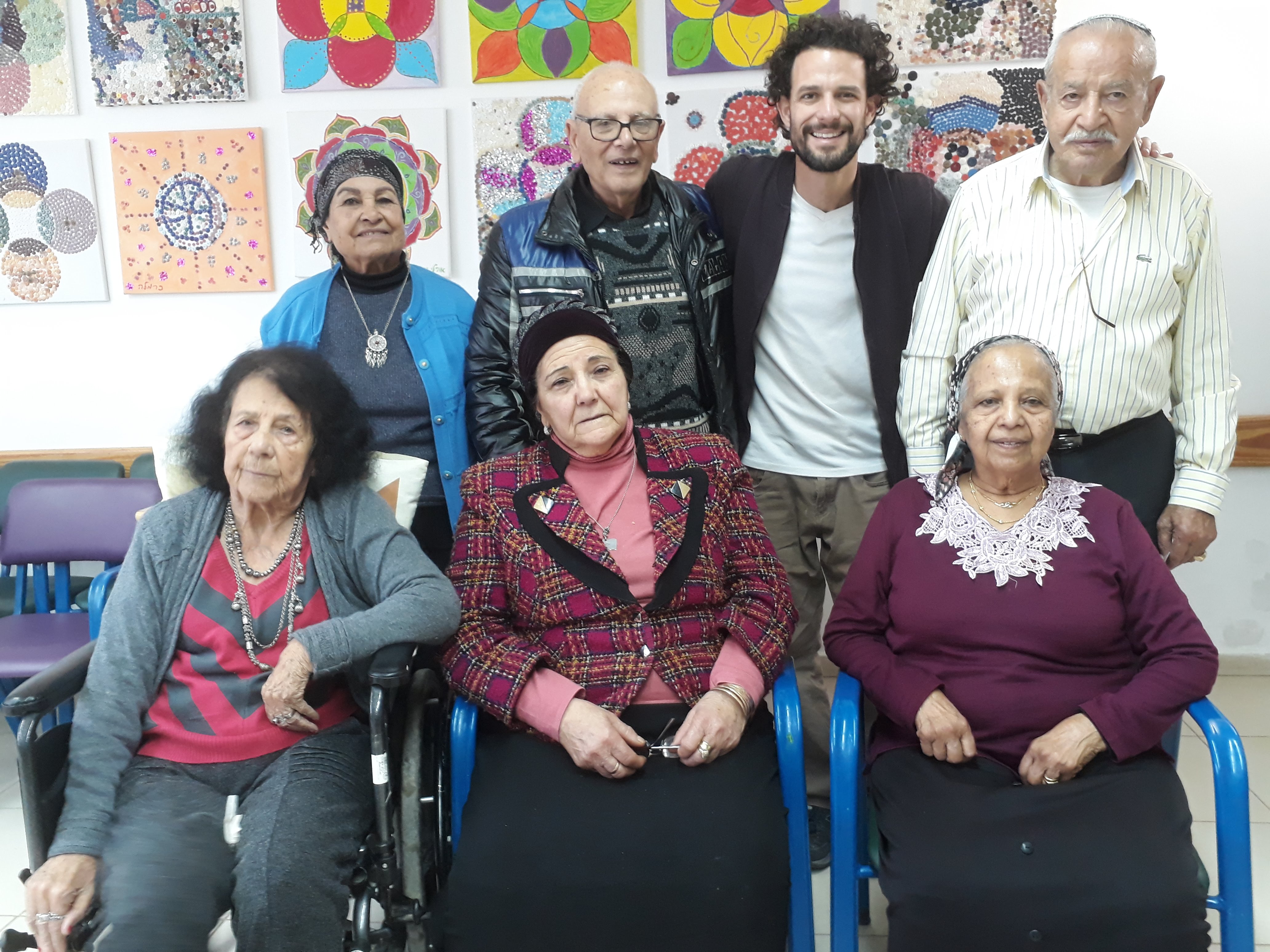Yoav Arnoni's Mission: Documenting the Stories of the Elderly Before It's Too Late
Yoav Arnoni, a social worker, is on a mission to capture the life stories of the elderly, drawing from their wisdom and providing a living memory for their families. With a video camera, patience, and a lot of love, he gathers stories and reveals fascinating testimonies.
 Yoav Arnoni
Yoav ArnoniFrom an early age, Yoav Arnoni (37) felt drawn to the world of the elderly. "The more I got to know older people, the more I realized how interesting and full of life wisdom they are," he recounts. "I wanted to learn more about them and sought a professional path that would help me understand them in depth, so I chose to study social work, specializing in the elderly."
Throughout his experiences, he discovered a deep and fascinating world, full of insights and life wisdom. "On the other hand, I saw that the treatment of the elderly isn't always respectful and appreciative. While some families respect the elderly, recognizing their rich life experience and accumulated knowledge, there are some families and places where this is the opposite, leading to loneliness and difficult experiences for the elderly."
 Group led by Yoav
Group led by YoavPassing It to the Younger Generation
Arnoni himself grew up in a kibbutz. "In the kibbutz, they always respected the older members, but on the other hand, they were sometimes pushed aside. Interestingly, when I researched the topic, I found that the more traditional, communal, or religious a society is, the more respect is shown to the elderly. It can’t be generalized, but it’s clear that the larger the family an elderly person has, the richer their life is, surrounded by warmth and love. It personally inspired me to build my life around family, giving, and community."
For years, Arnoni worked as a social worker visiting elderly individuals in home care. "I saw people nearly collapsing due to the challenges of illness and aging, while others flourished and thrived at such times. Often, these were those with strong family and spiritual connections to Hashem. They seemed to have a deeper foundation to handle illness and weakness."
Arnoni now works as a social worker in assisted living in Jerusalem and has a unique entrepreneurial project. "I document the life stories of the elderly," he explains. "The documentation isn’t in writing but through video clips and photography. I film the elderly telling their stories, then edit the clips and pass them on to future generations. I use my professional knowledge to guide the elderly to open up and voice their experiences. It's beneficial from all perspectives because it gives the elderly the feeling of being central, leading to openness and internal processes. For family members, it provides a highly valuable memento."
"There was an elderly lady who told me about how, as a young girl, she lost her father and scarcely knew him. Only after our discussion and documentation did she tell me it was the first time she shared this with her children, bringing their grandfather to life for them as if he were still alive. It was very moving."
Sometimes, Arnoni chooses to document life stories through group activities. "I lead groups of elderly people who meet and share their stories with one another. This encourages them to open their hearts, speak, and converse, while I ensure everything is documented. The group setting often helps them discover commonalities, realizing they come from the same place or background, have mutual relatives, and other interesting connections."
The Life Story of Amram David (Edited by Yoav Arnoni)
Immortalizing the Generation
A special story Arnoni documented is of a treasured Holocaust survivor named Yitzhak Boker. "Yitzhak recounted being on the death march with his entire family, walking kilometers upon kilometers. All the weakest were left behind, and that's how he said goodbye to his grandparents. Ultimately, he and his brother survived. After the war, a train took them to the city of Satmar in Hungary. All the Jews of the Satmar community, in new clothes, waited for them at the station. It was the evening of Passover Seder, and each family warmly welcomed the survivors, prepared a full Passover table with all the good food, and even gave them new clothes. Yitzhak described that Seder night as if resurrecting from the dead. This story personally touched me so deeply that last Pesach eve I called him to say how much I feel that his story is alive with me as I prepare for the holiday."
Arnoni often finds himself documenting Holocaust survivors. "Their stories are always powerful and full of force, but I try always to bring not only the Holocaust descriptions but also stories of revival and restoration."
Conversely, he has documented many stories from those who emigrated from Eastern countries, speaking about their urgent move to Israel as children. "It was fascinating to sit with them and hear about their yearning for Zion. They repeatedly spoke about the dream of Jerusalem."
"One elderly woman from Morocco told me about coming to Israel on one of the immigrations, and at the time of boarding the plane, the non-Jews asked them to remove all rings and earrings because 'the plane won’t take off because of the weight.' They tricked them and took all their property. According to her, they didn't even mind but gave up much wealth to reach the holy city. Only when they landed in Israel did they realize they were far from Zion and that the absorption challenges were not easy. She went on to describe how, at eighteen, she found herself responsible for the entire household – raising chickens, harvesting in the field, and surviving on very little, while her husband worked road construction. Much effort, sweat, and tears were invested in building the home and family."
"I find it deeply fascinating to hear about all the trials this generation went through," says Arnoni. "I feel privileged to document such a special generation. Not every generation immigrated to Israel or overcame wars. Our generation, for instance, has fewer such stories because we were born into something ready and relatively easy. The previous generation is one of hard work, and it’s an honor to document their stories, to listen and to give them the sense that they are the heroes."
The Method: Patience Is Key
But surely there are elderly people who don't want to open up and share...
"That's not accurate," Arnoni insists. "I believe everyone, deep down inside, wants to share their story, but the platform isn't always sensitive, and the surrounding people don’t always know how to listen. That's why some initially refrain from sharing. But from my experience, when the right time is found, and it's done with patience, appreciation, and attentive listening, the elderly always open up and discover that it feels good to revisit their memories."
Can you share some advice on encouraging our grandparents to open up and share their stories?
"First and foremost, it's very important to guide them with questions. It’s not enough to just hear the story; it’s crucial to try to find out: ‘What was the significant moment in your life?’ ‘What are you proud of, and what brings you joy?’ It’s worth sticking to such questions to reach a broader message.
"Also, be aware that memory is like a fan. Sometimes, grandpa might say he doesn’t remember or that ‘it’s not important,’ but if you keep asking and say, for example, ‘Tell me about the cheeder where you grew up,’ he will go back to that sensory experience and recall the sights and sounds, bringing the memory to life through his senses. You can also progress chronologically – where did you grow up as a child? Where did you study? What games did you play? How did you celebrate your bar mitzvah? And so forth."
He also offers one last important tip: "When visiting your grandparents, try to make time and don’t rush. Arrive with all the patience in the world, disconnect the mobile phone, and attempt to convey that you have all the time and attention to listen. This will significantly benefit grandpa and, above all, benefit you."
Contact Yoav Arnoni: yohavarnoni@gmail.com

